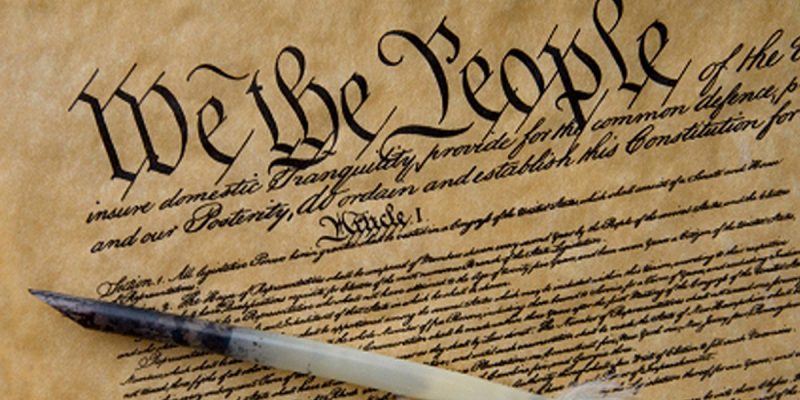Editor’s Note: A guest post by Walt Garlington.
When is a law not a law? In the North American context, that is a question that was taken up by various statesmen in the English colonies: for example, during the Stamp Act crisis of the 1760s. The French colonists of Louisiana had to grapple with similar problems when the Spanish became their rulers in the same decade and began to subject them to harsh new laws, but the Frenchmen did not formalize their response to these actions as the English colonists did.
The answer that the latter gave was two-fold. A law is illegitimate when an unauthorized agent pursues a legitimate end of government, or when an authorized agent pursues an illegitimate end. John Adams, James Otis (both of Massachusetts), and Patrick Henry (of Virginia), amongst others, fleshed out these ideas in their speeches and writings:
Innumerable are the Calamities which flow from an Interruption of Justice. Necessity requires that the Doors of Justice should ever be open to hear the Complaints of the Injured and Oppressed.
The Stamp-Act, I take it, is utterly void, and of no Binding force upon Us; for it is against our Rights as Men, and our Priviledges as Englishmen. An Act made in Defiance of the first Principles of Justice: an Act which rips up the foundation of the British Constitution, and makes void Maxims of 1800 years standing.
. . . This Act has never been received from Authority, therefore in a legal Sense we know nothing of it.
The Necessities of Business, the Cries of the People call aloud for Justice. It has become impossible to execute this Act, therefore if it were binding, we are excus’d by every Law, human or divine, from a Compliance with it. Wood’s Inst. 561. The King’s Writs are ex debitâ Justitiâ, and cannot be denied the Subject. And in Magna 153Charta, it is said, We deny no Man Justice, we delay no Man Justice. 2 Inst. ch. 29. p. 56.
Again, these writs are not returned. Writs in their nature are temporary things. When the purposes for which they are issued are answered, they exist no more; but these live forever; no one can be called to account. Thus reason and the constitution are both against this writ. . . . But had this writ been in any book whatever, it would have been illegal. All precedents are under the control of the principles of law. Lord Talbot says it is better to observe these than any precedents, though in the House of Lords, the last resort of the subject. No acts of Parliament can establish such a writ; though it should be made in the very words of the petition, it would be void. An act against the constitution is void….
Resolved, That by the two royal charters granted by King James the First, the colonists aforesaid are declared entitled to all privileges of faithful, liege, and natural born subjects, to all intents and purposes, as if they had been abiding and born within the realm of England.
Resolved, That his majesty’s liege people of this his most ancient colony have enjoyed the right being thus governed by their own assembly, in the article of taxes and internal police; and that the same have never been forfeited or any other way yielded up, but have been constantly recognized by the kings and people of Great Britain.
Resolved therefore, That the general assembly of the colony, together with his majesty or his substitute have in their representative capacity the only exclusive right and power to levy taxes and impositions on the inhabitants of this colony and that every attempt to vest such a power in any person or persons whatsoever other than the general assembly aforesaid is illegal, unconstitutional, and unjust, and has a manifest tendency to destroy British, as well as American freedom.
As one may readily see, they were not shy about declaring laws ‘void’, ‘illegal’, ‘unconstitutional’, ‘unjust’, ‘of no Binding force upon Us’, and so forth. And they put their principles into action. As we spiral down into the pit of injustice that the Biden Administration is already taking the States with regard to abortion, transgenderism, harassment of those protesting at the Capitol who had nothing whatsoever to do with the violence that took place on 6 Jan., and energy production, we are going to have to re-engage in a serious way with questions about how to deal with illegitimate laws.
Advertisement
But the colonists, North and South, have already given us the answer we need: All illegitimate laws are to be seen as null and void, having no power, and are to be ignored and not enforced. This is at the heart of what the Louisiana State Sovereignty Committee is advocating: That States, parishes, cities, etc., should pass ordinances making such a declaration of nullification and pledging to do all else that is needful to shield their citizens from the effects of unlawful federal acts, whether of Congress, the president and the executive bureaucracy, or the courts.
At one time, when men and women were still brave enough to take real action to defend their principles, nullification was standard fare in the life of the union. But since Pres Lincoln smashed the States militarily to create his new indivisible nation, which was founded on the merger of big money men with the national (not a voluntary, federated) government, most politicians at whatever level have abandoned their principles in their quest for more and more lobbyist/donor/campaign money. The response of Louisiana’s elected officials to the unlawful acts coming from Washington, D. C., in the Biden-Harris years will tell us what kind of character they have, whether they are true shepherds of their people who will sacrifice for them if need be, or whether they are merely hirelings who will “abandon them to the claws and fangs of the wolves” (St John’s Gospel 10:7-18).
Advertisement
Advertisement

